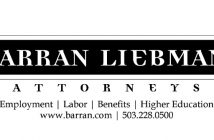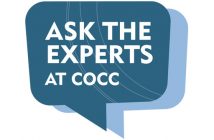FWhile family businesses are responsible for more than half the jobs in the U.S., a lot has changed in their world over the past few years. With less revenue and a tight economy, many business owners have had to lay off numerous employees and increased their own hours just to keep the company doors open. And in the family owned business, founders have had their plans put aside and foregone an expected retirement; some family members have joined the company to keep it afloat (or just to keep working if they were laid off from another job) and others who thought their time had come to head the company now realize that it might be another ten years before that occurs.
The family owned enterprise has been confronted with new challenges when its revenue base was abruptly stalled due to the huge economic downturn. Those who are surviving and even thriving are doing so through innovation, team building and just plain hard work.
The savvy Central Oregon family owned business has gotten help with its direction through advisory boards such as Opportunity Knocks Economic Development of Central Oregon, SCORE or the COCC Small Business Development Center. Getting the best from your professional advisors and employing an open organization policy have been key to many successes.
Dr. Donald J. Jonovic (author of the family business book, Someday It’ll All be… Whose?) suggests that owners of closely held companies tend to focus on the short term… dealing with immediate problems/challenges and rewards. But this, he says, is definitely not the way to insure growth and build shareholder value over the long term whether you pass the business on to the next generation or end up selling it.
Transition, developing management, building a unified shareholder vision, even maintaining sound buy-sell agreements, all of which serve to enhance the long term value of a firm, are processes that require a long range view. It’s all part of “professionalizing” the family business, according to Jonovic, a lecturer, family business consultant and author of a half dozen books on family business issues.
“Professionalizing a successful closely-held company,” Jonovic added, “begins with the ownership. It’s about “responsibility about how we focus the dream (business) and nurture its growth so that it will continue to provide ample opportunity for as long as the family stays together… as long as we enjoy it.”
The four key elements are:
Defining Future Governance: Determining how and where you see yourself and the business in years to come requires an outside perspective and professional advisors.
Managing Ownership: Whose business is it after all? There’s your spouse, your children and grandchildren. What happens if you suffer a setback, a disabling illness? An outside board along with professional advisors will help you plan and prepare for
such contingencies.
Organizing Management: You need to identify goals and establish objectives — obvious value levers, he said, which may be lacking in closely held companies.
Developing Vision. The fundamental objective of business ownership is the building of shareholder value, which means increasing cash flow, expanding profits, building equity and adding to the market value of the business. But, as the business grows, becomes more successful, the issues become more complex. Outside threats increase and solutions take more time to implement and show results. Professionalizing the business by properly utilizing outside advisors will help you plan and develop the kind of strategies needed to expand the firm’s vision and ensure its future growth.
ARE YOU MANAGING YOUR ASSET
THE BEST YOU CAN?
One of the frustrations that family business members report is confusion over unclear objectives and shifting priorities. A family business leader may emphatically commit to a course of action one month and then change direction, either radically or more subtlety, a few months later.
A family business is best driven through a sound philosophy supported by a comprehensive strategy supported by daily tasks and by crystal clear roles and responsibilities. Changing or unclear objectives and priorities don’t allow people to truly focus their minds and hearts. It’s like hitching two horses to a wagon without yoking them together, they’ll pull, and the wagon will move, but it won’t be efficient or pretty.
A corollary to do what you said you would do is to finish what you start. If an initiative is good enough to undertake, it’s good enough to finish.
Lowell Lamberton of Central Oregon Community College writes: according to federal government figures, around 92 percent of all businesses in America are family owned and controlled. Family-owned businesses provide jobs for roughly 57 percent of the workforce and accounted for more than 68 percent of all new jobs.
Lamberton offers that if you are part of such a business, your importance to the nation’s economy is staggering. Many family businesses, however, operate as though there were no tomorrow. Owners often think of the family—and perhaps of themselves—as virtually immortal. Why plan for future ownership, when it’s all in the family anyway? Perhaps even more than other companies, family-owned businesses need succession plans. Family members must jointly develop a succession strategy. Failure to do so can result in the loss of everything the company is about.
The rule rather than the exception is the family business without clearly articulated goals and missions whose business philosophy exists only as “sell more business at a higher profit than we did last year.” It doesn’t make sense to have family members and employees charged with the execution of keeping the company hardy and healthy when they don’t have a clear picture of where they’re headed.
Resources for this article: www.frugalentrepreneur.com, Family Firm Institute Inc. , www.ffi.org, The Family Business Network, www.fbn-i.org, National Center for Family Business www.fambizadvice.com.




